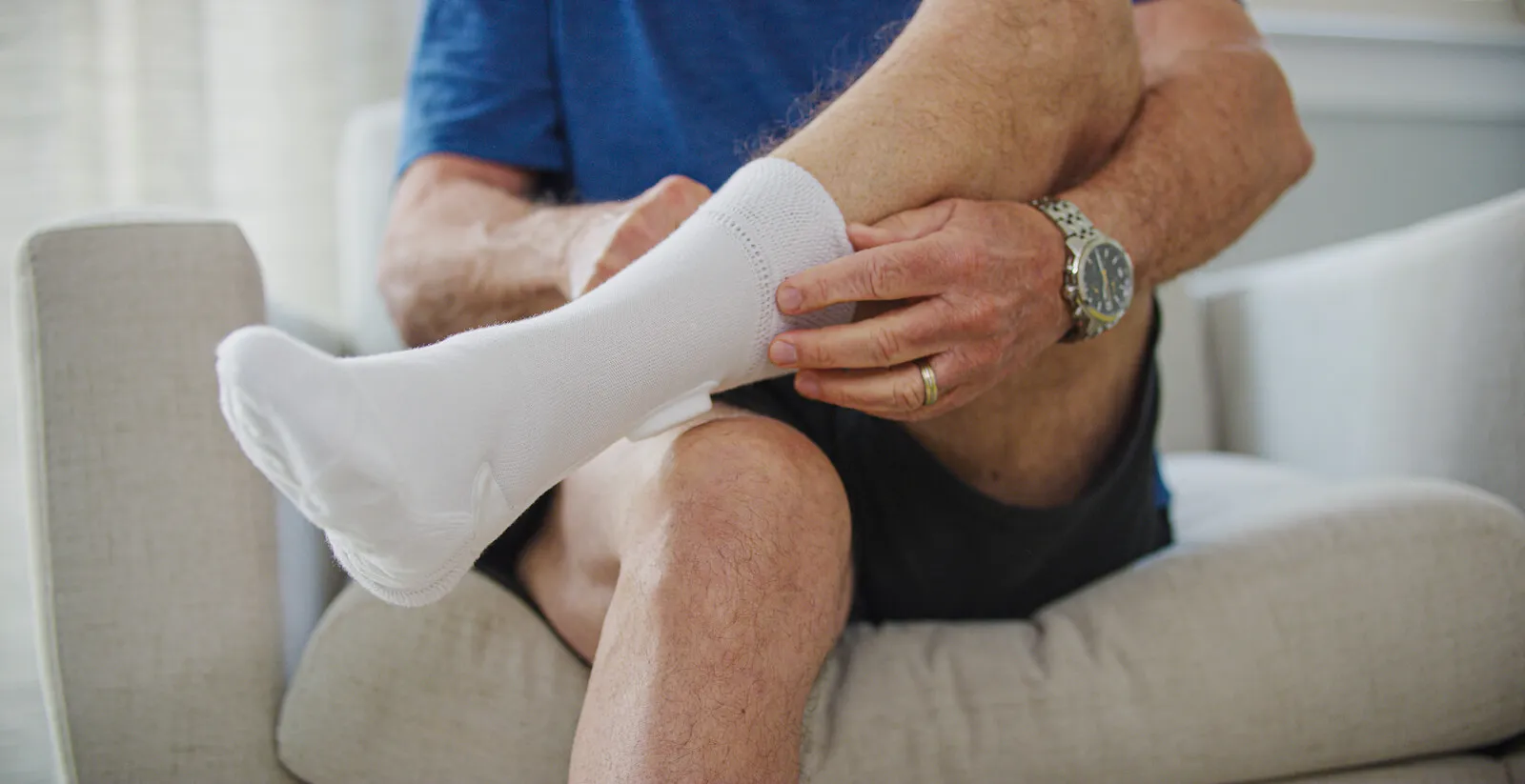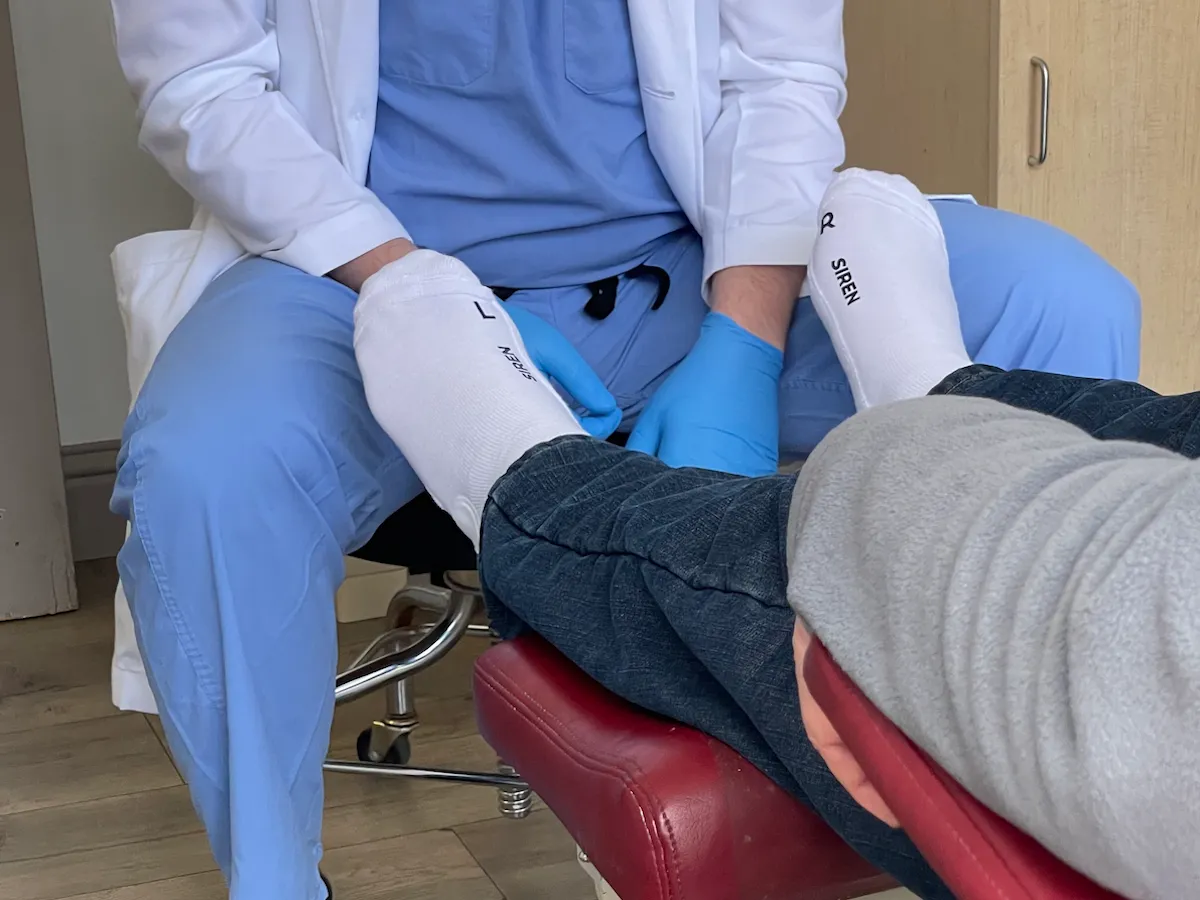-
January 12, 2022
Virtual Healthcare: 5 Things To Expect in 2022
Here are a few of the most anticipated virtual healthcare trends that we can expect in 2022.

Virtual healthcare has been increasing in popularity over the past several years. Since the start of the Covid-19 pandemic, patients and healthcare providers have discovered the immense benefits of receiving medical care online and over the phone. There are no signs that this upward trend in virtual healthcare will slow in the coming years.
Here are a few of the most anticipated virtual healthcare trends that we can expect in 2022.
Hybrid Care
Hybrid healthcare is medical care that is provided both in-person and virtually. Typically patients will see their doctor in person for a thorough examination, and their doctor will provide virtual follow-up care.
Many patients and care providers have been using the hybrid care model throughout the pandemic to help reduce exposure to Covid-19 and expand access to healthcare. Most users have found this method convenient and wish to see it continue indefinitely.
Hybrid care benefits patients and healthcare providers by:
- Minimizing the need for disruptions in busy schedules
- Reducing in-office turnover, saving healthcare workers time in between patient appointments
- Increasing the availability of follow-up care
- Allowing patients to have meaningful in-office visits with their providers
Continued Medicare Coverage
Before the pandemic, Medicare limited its coverage of telehealth appointments due to the uncertainty of its effectiveness and concerns that healthcare providers would abuse reimbursement benefits. However, in March 2020, the US government announced that Medicare would temporarily cover virtual healthcare to increase access to medical care and reduce the risk of spreading Covid-19 during this public health emergency.
Policymakers have been pushing for permanent Medicare coverage of virtual healthcare, and based on current trends, the outcome seems promising. Last week, the Centers for Medicare and Medicaid Services (CMS) announced that it will be extending coverage of select telehealth services through 2023, marking a significant shift in the future of healthcare delivery.
Chronic Disease & Mental Health Management
Chronic disease and mental health management are quickly becoming the most common telehealth services provided. Because these conditions are ongoing and require long-term treatment, virtual healthcare is an excellent method of conducting regular check-ins and follow-up care.
Treatments for chronic diseases and mental health conditions are relatively stable and typically require only minor adjustments if problems arise. Patients can easily address minor concerns on a virtual platform with their established provider, reserving in-office visits for urgent acute issues or more comprehensive assessments.
By making healthcare more accessible on a digital platform, patients with chronic illness and mental health conditions can receive more regular and timely care, improving disease management and reducing the chance of hospital admission.
Audio-Only Telehealth
Many Americans find themselves unable to use internet-based healthcare services due to poor internet access or discomfort with computer technology. For these individuals, in-office visits are the only way to access healthcare, limiting their ability to address medical concerns promptly.
During the pandemic, telephone healthcare appointments have been a useful yet controversial tool for those with limited broadband access. Some experts argue that audio-only medical care is less effective due to a lack of face-to-face interaction, but others disagree.
Healthcare professionals can gain vital information during a phone call, such as a description of the patient’s symptoms and any home treatments they have tried. The provider can then determine if a visit to the office is necessary or if the patient should seek emergency services.
In 2022, the CMS will continue covering telephone appointments amidst the ongoing public health emergency. The CMS also announced that Medicare and Medicaid will be covering audio-only mental health services indefinitely, but it is unclear if these benefits will extend into other healthcare specialties.
Remote Patient Monitoring
Remote patient monitoring (RPM) is any digital device that collects a patient’s medical data and transfers the information to their healthcare provider. RPM devices have been in use for many years and continue to grow in popularity with the advancement of medical technology.
Some examples of RPMs are:
- Wearable medical devices (heart monitors, glucose monitors, watches, etc.)
- Weight tracking
- Calorie tracking
- Blood pressure monitoring
- Implanted medical devices (pacemakers, ICDs, heart failure monitors)
RPM makes tracking health and wellness simple for both patients and providers. Trained healthcare professionals can monitor the data from these devices and detect slight changes that may indicate the development of a more serious medical issue—sometimes before the patient exhibits any symptoms!
As healthcare continues to shift into the digital realm, we can expect the use of remote patient monitoring to increase in popularity.
Siren’s diabetic socks are an example of the power of virtual healthcare. Our wireless sensors detect the early signs of infection and injury by monitoring for changes in the temperature of your feet. Simply plug the wireless hub into an outlet and wear your socks—our certified providers will handle the rest! Schedule an appointment with a certified Siren provider to find out if our socks are right for you.
Sources:
Department of Health and Human Services. What is telehealth?
Medicare.gov. Telehealth.
Siwicki, B. Advances in telemedicine are on the way in 2022.
Siwicki, B. Amwell CEO on what 2022 may hold for RPM and telehealth reimbursement.
The American Telemedicine Association. Dozens of Stakeholders Urge Congress to Expand Telehealth Options for Employees.
Wicklund, E. Examining the Benefits and Challenges of Audio-Only Telehealth.
Latest Articles

Siren Raises $9.5M, Led by an $8M Investment from Mölnlycke Health Care to Drive Diabetic Foot Ulcer Prevention and Management
Siren announces investment by Mölnlycke of $8 million to further development and adoption of Siren’s innovative diabetic foot ulcer prevention solution.
About Siren Socks
Siren Socks are smart socks that help detect potential issues with your feet. Siren Socks are an FDA-registered Class I medical device and are designed for people living with diabetes and neuropathy. The socks measure your foot temperature. Temperature monitoring has been shown to help reduce the number of diabetic foot ulcers in multiple clinical studies over the past 20 years and is considered the gold standard in diabetic foot care. The information from the socks is monitored by licensed nurses who contact you regularly to check on your health and the status of your feet. Your doctor reviews any issues that arise and determine if a clinic visit is necessary. Siren Socks are covered by Medicare, Medicare Advantage, and many private insurance plans. Interested patients can find a Certified Siren Provider near them and begin the enrollment process by clickinghere.
